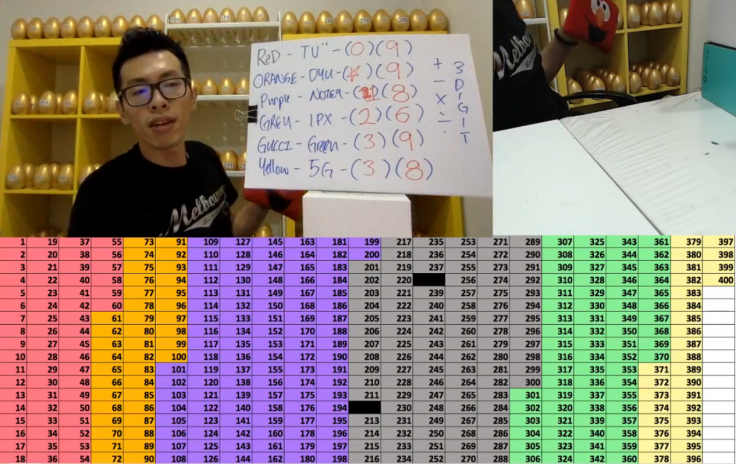
In Singapore, Mystery prize machines are banned, as the gaming process is considered a form of public lottery, which is illegal. But, on Facebook's Live platform, recently similar games have gained traction among youngsters and it is also illegal.
Last month, the Singapore Police Force said in a statement that they are well aware of the operation of vending machines, which dispenses random prizes depending on the receipt of cash payments in public areas. In addition, they said since these activities are one kind of lottery, people, who are involved in such operations, are committing the crime under the Section 5(a) of the Common Gaming Houses Act.
In the case of the illegal online games, during a Facebook Live session, the games feature containers such as golden eggs or charm packets with numbers that are sold for $5 to $20 each. These payments are made via bank transfer or services such as PayNow. After the receiving the payment the host of the game opens the container on-camera to reveal the mystery prize.
The 29-year-old host of Dyon Live Entertainment Game Show, Dyon Ng, who has more than 1,700 followers on his Facebook page told The New Paper that this is a full-time job and about 50 people join his daily show.
Ng, who is also a graduate of the Institute of Technical Education added that once a viewer bought about 80 golden eggs for more than $1,200 and as of now it is the largest purchase. The man won an iPhone X but now not everyone is lucky to get such big prize.
Ng said as of now the highest viewership is 450 since the start of the game in March 2018. It was launched after being inspired by The Fragment Room, which allows customers to vent by smashing items.
In addition, the host said he likes to make people happy and this game makes him happy too, enjoys the way viewers get involved on the Facebook Live platform.
Reports stated that there are almost five similar game pages in the country and one of them is called, iLoveSales.SG, which has more than 20,000 followers.
While warning people about such games, criminal lawyer Rajan Supramaniam said that may be Ng is not feeling that operating such games are inappropriate but these actually promote gambling. He also said that there is a lack of transparency and there is a possibility that some of the participants are children.
Remote Gambling Act states that-
(1) In this Act, "remote gambling" means gambling in which a person participates in the use of remote communication, even if the gambling is done only partly by means of remote communication.
(2) In this Act, "remote communication" means communication through —
(a) the Internet;
(b) telephone;
(c) television or radio; or
(d) any other kind of electronic or other technology for facilitating communication,
but does not include any specific system or method of communication that the Minister declares, by order in the Gazette, is not to be treated as remote communication for the purposes of this Act.
The Common Gaming House Act says:
- Any person gaming in any public place shall be guilty of an offence and shall be liable on conviction to a fine not exceeding $5,000 or to imprisonment for a term not exceeding 6 months or to both; and all instruments or appliances for gaming seized under this section may be declared by the court before which the conviction is had to be forfeited to the Government and shall be dealt with accordingly.
- Any person who is the tenant, lessee, occupier or person in charge of any public place which is used for gaming shall, unless the person proves that he has no knowledge that the premises are used for gaming, be guilty of an offence and shall be liable on conviction to a fine of not less than $20,000 and not more than $200,000 and shall also be punished with imprisonment for a term not exceeding 5 years."
- Any person who instigates, promotes or intentionally facilitates the commission of an offence punishable under subsection (2) shall be guilty of an offence and shall be liable on conviction to a fine of not less than $20,000 and not more than $200,000 and shall also be punished with imprisonment for a term not exceeding 5 years.









